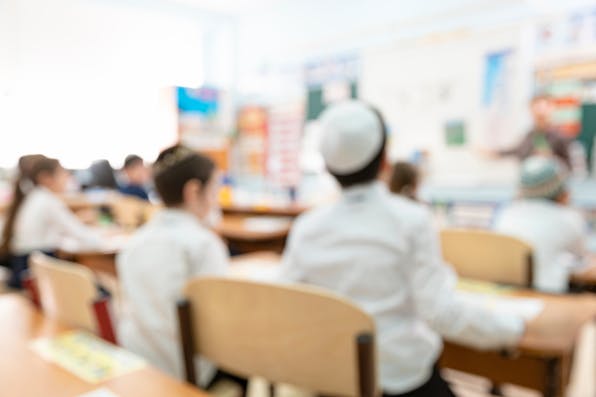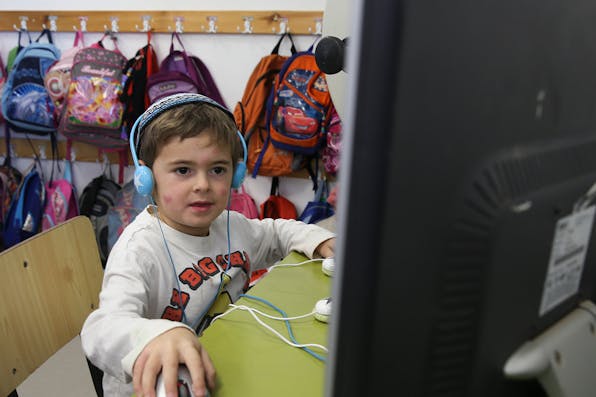
August 2020
The Jewish Schools of the Future
After the Great Disruption, a new renaissance can emerge, marrying Jewish classical education and novel technology, and confronting the cultural crisis with Jewish exceptionalism.
Every so often in history, a series of great disruptions—unrelated at first in their nature and origin, accidental in happening all at once or in rapid succession—changes the fundamental landscape of nations, peoples, and cultures. We are living in such a moment in modern America: our citizens in masks, our economy in turmoil, our American heritage under fire, a new left and new right simultaneously emerging, a series of major Supreme Court decisions about the role of religion in American public life, and the rapid normalization of digital learning technologies that will endure for many years to come. All this has occurred in a mere matter of months. Nearly every institution of American culture and society stands to be altered, often for worse and perhaps eventually for better. And no web of institutions will be altered more profoundly—and with greater long-term civilizational significance—than our schools and colleges.
For American Jews, education is an existential issue; immersion in Jewish customs, ideas, and practices is the only reliable guarantor of a living Jewish civilization from one generation to the next. And before the Great Disruption, American Jews had plenty to worry about in this sphere. The vast majority of young Jews were receiving little or no Jewish education at all, certainly not of any real gravity. Modern Jewish day schools faced year-to-year struggles to balance the budget, to offer a dual curriculum that combines general studies and Jewish depth, and to educate a spectrum of students with vastly different educational needs and capabilities, from learning-disabled kids to academic all-stars, often in small, communal schools. The yeshiva world was bursting at the seams—with pop-up schools in trailers to accommodate over-enrollment—but often struggling to offer a high-level program of general studies and facing their own relentless economic challenges. And many American universities had become bastions of anti-Israel and increasingly anti-Jewish sentiment, with plenty of kosher food and beautiful Hillel buildings but little tolerance, within the larger college environment, of traditional Jewish belief or Zionist commitment.
None of this should diminish the heroic efforts of many Jewish educators, or the remarkable generosity, hard work, and creativity of many lay leaders and philanthropists, or the sacrifice many parents make to provide their children with a full-time Jewish education. There are surely oases of excellence in the American Jewish educational world: rabbis, teachers, and students, clustered within myriad Jewish institutions, who believe in the sacred task of transmitting Jewish exceptionalism. But the hard truth remains: these oases of Jewish vitality are still islands in the assimilating American sea, and the cultural and economic tide is pushing hard against them. This was our state of affairs, well known to concerned Jewish leaders, before the Great Disruption.
Responses to August ’s Essay

August 2020
What Christians Can Learn from the Jewish Schools of the Future
By Ian Lindquist
August 2020
The Policy Paths to the Jewish Schools of the Future
By Jason Bedrick
August 2020
New Technology Alone Won’t Save Jewish Education
By David Fohrman
August 2020
What Will Come of Jewish Education When Educators Have Ceded Their Authority?
By Eric Cohen